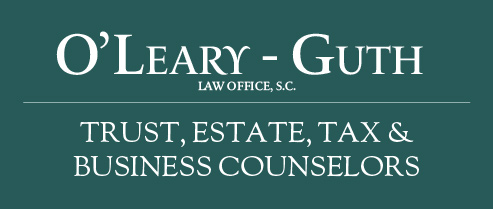Tax Basis Planning Opportunities
Posted: April 8, 2018
The recent Tax Cuts and Jobs Act (the “TCJA”) introduced significant changes to the estate tax, gift tax and generation-skipping transfer tax provisions of the Internal Revenue Code. Principle among them is the doubling the transfer tax “lifetime exemption”, which is the amount everyone can shelter from estate and gift taxes to $11.18 MM in 2018, or potentially $22.36 MM for married couples. As a result, estate and gift taxes are no longer an issue except for very wealthy taxpayers.
One part of the Internal Revenue Code that the TCJA did not change, however, are the tax rules that result in a basis adjustment for assets included in a decedent’s estate. This adjustment results in the basis of those assets for federal income tax purposes being either “stepped up” or “stepped down” to the property’s fair market value at the date of the decedent’s death. (An important exception to this rule is “income in respect of a decedent” or “IRD”, which is earned income that has not yet been taxed; such as profit sharing and pension plans, retirement accounts, IRAs, annuities, deferred compensation, etc. The basis of IRD property is not adjusted at death.)
For example, if a person’s estate includes property that at the time of death had an income tax basis of $100,000 and a fair market value of $500,000, the person who inherits that property would receive a “stepped-up” basis of $500,000. As a result, if the heir sells the property for $500,000, capital gain taxes are not triggered by the sale, because the $500,000 sales price and the $500,000 tax basis are the same. If the same asset was sold without the step up in basis, capital gains taxes of up to $80,000 would be owed on the sale.
The retention of the basis adjustment rules combined with the increased exemption amount has resulted in a tremendous tax saving opportunity for those who plan ahead. This is because assets that are pulled into an estate can receive a basis step up when the person dies even if the decedent’s estate is not large enough to trigger an estate tax. This means there could be opportunity for you to benefit from a tax-free step up in basis for things such as highly appreciated stock, depreciated real estate, and family farms and businesses.
There are a number of ways for assets to receive a basis step up when someone dies without transferring outright ownership to the decedent. We would be pleased to discuss these opportunities with you. However, the lifetime exemption is set to decrease in 2026 to pre-TCJA exemption levels ($5MM per person, indexed for inflation), so please schedule your complementary appointment as soon as convenient to ensure that you can take advantage of the increased lifetime exemption. We look forward to hearing from you.
Schedule an appointment with us today.
Meet with a knowledgeable attorney who specializes in your area of law.
1251 W. Glen Oaks Lane, Mequon, WI 53092
F: (262) 238-6999
